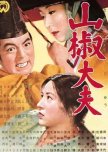
"A man is not a human being without mercy"
Sansho the Bailiff had little to do with the title character and everything to do with two noble children sold into slavery to him. A family torn apart never let the dream die of being reunited one day. They would all have to decide if they should continue doing the right thing when good things happened to bad people and bad things happened to good people.A governor who refuses to let the military conscript and further tax his people who have experienced famine for 13 years is stripped of his title and exiled. Before he leaves, he tells his son to remember that “A man is not a human being without mercy…Everyone is entitled to their happiness.” He gives Zushio the treasured family statuette of Kannon, the Goddess of Mercy to keep with him. His wife Tamaki and the two young children stay for a time with her brother and then determine to make the long trek in search of the father. Along the way they are betrayed in an area rife with bandits and slave dealers. Tamaki is sold into prostitution on a distant island and the children are sold into slavery to Sansho the Bailiff. Sansho is a cruel slave owner who keeps his slaves in a walled compound. Any attempt at escape results in a branding on the forehead. Sansho’s son, Taro, is kind to the children and tells them to endure until they are old enough to escape and make the difficult journey to their father. He then leaves the compound, never to return. As the children age, Anju adheres to her father’s words of wisdom while Zushio abandons them and in a twist of fate becomes the cruel "son" Taro could never be.
Calling out injustice was a familiar theme for Mizoguchi. In this film, the barbarism of forced labor camps was brought forth. More than once, the suffering of the common people was dismissed as unimportant by the affluent leaders. Much as his sister in real life had been, Tamaki was sold into prostitution. Despite the longing and despair of the characters, the scenery was amazing. Cinematographer Miyagawa Kazuo brought great beauty to the black and white film with stunning outdoor shots. Mizoguchi used water in several scenes—a lake and the ocean providing two of the more powerful moments in the film. Sansho’s slave encampment was claustrophobic and filthy, dark with hopelessness hanging over the weary people.
Sansho the Bailiff was based on a 1915 short story which was based on an old folk tale. What is curious about the title of the film was that Sansho was the villain and appeared far less than Zushio and Anju who were sold into slavery to him. Instead of Sansho’s story this was the boy Zushio’s as he grew into manhood. The mother and children were given different names along their journeys of suffering and as they sought to hold onto and rediscover their identities. Zushio’s growth and quest to reunite his family was the narrative backbone to the film. And if his growth was the backbone, Anju’s and Tamaki’s loving persistence was the life-giving blood of the film. Both women had deeply poignant scenes that will linger in my mind. Anju had a devastating scene that far from being melodramatic was like ripples through time that would affect other characters’ lives. And like those ripples the good done by the family members spread ever outward even when the family paid the cost. Sansho the Bailiff juxtaposed man’s cruelty and ability to be merciful, an ongoing battle even now as humankind decides who they want to be when they grow up.
15 April 2024
Was this review helpful to you?
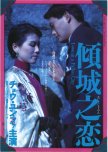
"Compared to the cosmos, how tiny we are!"
Two people dancing around a relationship struggle to understand each other’s feelings and even their own as the clock ticks down to the Japanese occupation of Hong Kong in Love in a Fallen City. Chow Yun Fat was sizzling as the westernized playboy who takes an interest in Cora Miao’s solemn divorcee.Pai Liu Su is being pressured to attend the funeral of her ex-husband. She’s been living with her family the last 7 years ever since she walked away after the brute had beaten her. In an explosion of words, her family tells her what a burden she’s been and how she never should have gone through with the divorce. All this despite the fact her brother lost her fortune in bad investments. Mrs. Hsu, a family friend, takes Pai and her younger sister to meet a couple of eligible men. Pai and Fan Liu Yuen hit it off before he leaves for Hong Kong. Mrs. Hsu invites Pai to accompany her to Hong Kong and stay as her guest. Pai and Fan grow closer as they spend time together, yet neither is sure of the other’s motives. Pai fears she will be just another notch in Fan’s belt and Fan fears Pai is only using him to get of out of her toxic household. Will the coming invasion drive them further apart or into each other’s arms?
“Life, death, and parting are immense things beyond our control.”
Chow Yun Fat brought the heat as he wooed the introverted Pai. I’d seen him in a number of action movies but here he turned on the charm and romance. It was hard to understand what Fan saw in Pai who appeared sullen most of the time. He seemed to enjoy the fact she was traditional, though untraditional enough to divorce and also to spend time with him.
“Laws can change from day to day, but morals and ethics, kinship and family, these things don’t change”
I’ve seen my share of Shaw Brothers kung fu movies filmed on their studio lots and with familiar exterior shots so it was a pleasant surprise to see the care and creativity allowed in this film. Hong Kong was explored and many scenes were filmed at the Old Repulse Bay Hotel. I was also pleasantly surprised to see so many women involved in the making of this film. Ann Hui was the director, it was produced by Mona Fong, and based on Eileen Chang’s novella. Violet Lam won the Best Original Film Score at the HKFA for her work.
“If everything should burn down, blow up, collapse, perhaps this wall will be left.”
I was confused by the timing of the story. The story took place from 1939-1941 approximately. My knowledge of Chinese history is minimal at best so my concerns may be over nothing. The Japanese occupied Shanghai by 1937 where the story began and there was no mention of their presence there in this film.
“Life’s never over for the poor.”
Despite Pai’s consistently somber attitude and the impending war, the movie never devolved into melodrama. Pai and Fan gradually worked their way through the problems hurled their way. The film clocked in around 90 minutes, short enough for the story to not become too maudlin and long enough to fall in love with Chow Yun Fat’s Fan Liu Yuen.
12 April 2024
Was this review helpful to you?

"Your life is more meaningful when you are willing to face yourself'
The Heroic Trio was a weirdly, wildly, stylized superhero movie starring three of the most beautiful women in Hong Kong films at the time. Michelle Yeoh, Maggie Cheung, and Anita Mui were caught up in an evil eunuch’s plan to steal babies and install one of them as the new emperor of China. This film had a Saturday morning superhero television show quality to it, if that show had cannibalism, decapitations, and dead babies and children.Tung is married to Inspector Lau. Little does her husband know that she is the much admired hero, Wonder Woman. When babies are being kidnapped with no ransom notes the duo springs into action in their own ways. Chat, The Thief Catcher, rolls in on her motorcycle armed with a pump shotgun and dynamite and saves the day when she rescues hostages at a chemical warehouse. A superhero for hire, she gives her card to the police chief whose new baby has been targeted. Ching, The Invisible Woman, works for the merciless and powerful eunuch who lives in an enormous fortress in the sewers. The eunuch believes that, “China cannot be without an emperor.” And by that he means an emperor he controls so that he would be the de facto ruler. By day Ching lives with The Professor who invented the Invisible cloak so that when it is perfected, she can steal it and kill him. She may not get the chance as the invisibility process is deadly toxic. The three women warriors collide as the kidnappings become more complicated and deadly. The eunuch’s superpowered minion, Kau, brings danger and loss of body parts whenever he appears.
This movie was off the rails bonkers and not for the faint of heart. In Western films, killing and torturing children is right up there with killing pets, it’s rarely done, or at least not done onscreen so the cruelty toward children was quite disturbing for me. The Flying Guillotine survived the ages from the 1975 movie and made a cameo here. There were also a variety of throwing weapons, explosives, razor bladed chains, and poison darts used. The women’s most powerful weapons were the humanity and sisterhood that had almost been trained out of them. Only through their combined powers could they take down the maniacal eunuch. Many of the actions scenes were filmed in low lighting as the characters climbed, leapt, and fell repeatedly. Despite the darkness, the wires showed at times, at other times the train broke through the fourth wall. While exploring the superhero genre, the film kept its feet firmly flying in Hong Kong wuxia history as well.
What was the draw to this absurd superhero movie? The cast! Michelle Yeoh was gorgeous with her flowing hair and impeccable timing, completely believable as the conflicted anti-hero. Ching had the most painful character growth spurred by her inconvenient love for the professor. It would take Chat and Tung to give her a reason to live and break free from the eunuch’s hold. Maggie Cheung went from cocky bounty hunter to the vulnerable middle child caught between two sisters she loved. Anita Mui alternated as the devoted wife and ferocious heroine who was the moral compass of the trio. The three women each had tortuous pasts that they had to come to terms with in order to move forward.
The Heroic Trio was not a great movie but it was entertaining. At times it veered into so bad it was good, especially near the end with an unhinged final fight. Regardless of the movie's shortcomings, it's always refreshing to have competent women warriors and superheroes even if the movie didn’t always serve them well. For fans of these actresses, if you can keep your expectations low, it’s definitely one to give a try.
10 April 2024
Was this review helpful to you?

"What comes after?"
That Day on the Beach opens with two women connecting after thirteen years. This film is not about their friendship for the most part, it primarily focuses on Jia Li’s choices and desire for her elusive happiness. The story is decidedly not linear, more circular, as director Edward Yang examined dysfunctional families, work places, and marriages.Tan Wei Ching, a celebrated pianist, made her first trip home to Taiwan after 13 years. She received a message from an old classmate and at the last minute decided to meet her for coffee. The classmate, Jia Li, is the sister of the boy she loved long ago. When Jia Sen was forced to marry someone else, Wei Ching cut ties with Jia Li and took a scholarship to study abroad. After the loss of her friend, Jia Li began dating Cheng De Wei. She discovered her father made a marriage pact for her, too. Watching the silent, sullen dinners with Jia Sen and his new wife convinced her she did not want that fate. She packed up and left that night. She and De Wei married soon after. De Wei’s old friend was shoring up his position at the company he worked for by hiring old friends and recruited De Wei. Soon the young couple bore the strain of the long days and nights De Wei was required to work and party.
I began this film thinking it was about two friends reconnecting. Around the 20-minute mark of this 165 minute film, Tan Wei Ching was all but forgotten. She’s the friend that got roped into someone’s life story when she asked, “Are you married?” That Day on the Beach also tries to lure the viewer in with police searching a beach during the movie’s introduction, making it seem this element would be ultimately pertinent to the story. Everything was window dressing and red herrings until the story of the excruciatingly slow and painful dissolution of Jia Li’s marriage began. With all of the flashbacks and flashbacks within flashbacks, I’m not entirely sure how long the agony went on for her, somewhere around 7 years. Honestly, it seemed longer. During this time, it was a constant back and forth of two people unable to communicate or come up with a better plan who kept thinking if they both said, “You don’t understand me,” enough, it would make a difference.
Jia Li was looking for love and happiness, thinking that marriage would bring it. It was not what she expected. De Wei was working at a job that required him to drink and socialize which he hated. Jia Li was naïve and De Wei was cowardly and both were completely disillusioned with their marriage. Li’s brother was miserable. Her mother had come to terms with her own flawed husband. Tan Wei Ching still missed the boy she’d loved. Everyone was unhappy and unfulfilled except for possibly the two most cynical characters. A predatory businesswoman and De Wei’s playboy boss seemed to be doing fine using the people around them for financial gain and pleasure. “The world I grew up in taught me that it’s a world without love. Perhaps you will find a moment or two of passion, but that’s not much.” The big mystery, regardless of outcome, was the result of a man willing to chew off his own arm to escape, but not the courage to confront the problem.
That Day on the Beach was a creative approach at displaying the costs of complex relationships, traditions, and toxic work environments. I was grateful that Jia Sen gave Li a piece of advice that helped her finally, after 13 years and 160 minutes, have some substantial character growth. If you are a fan of Edward Yang and long family dramas that tend to be caught up in a cycle of pain and dysfunction, this is one to try.
9 April 2024
Was this review helpful to you?

"What matters is your heart"
While Lao Tzu may have stated that the journey of a thousand miles/km begins with one step, he never imagined how the pilgrims in this film would experience that 1200 km journey. Prostrating themselves every 8 steps, the men, women, and child, traversed mountains in the bitter cold and blasting heat as they traveled for months to the holy mountain. Paths of the Soul was a deeply meditative experience in people acting out their faith in an arduous manner, never complaining and never faltering in their spiritual quest.In a remote Tibetan village five men and four women decide to make the physically demanding pilgrimage to the holy mountain at Lhasa. The idea came from an old man who had never left the village. His brother died before performing the pilgrimage and he is determined to go. A pregnant woman wants her baby to be blessed by being born on the pilgrimage. An alcoholic butcher desires to pay for his sins by going. Two brothers want to honor the two laborers who died while building their house. And a little girl who will have no one to provide for her at home joins the group. One volunteer drives the tractor that pulls their tents and supplies as a priest leads the way. The pilgrims wear heavy animal skin aprons to protect their bodies and clothes when they slide forward on the ground and wooden planks on their hands. They chant, clap, and prostrate themselves, forehead to ground, get up and do it all over again in 8 steps or so for approximately 1,574,400 steps.
The film was shot documentary style and felt very much like one. Instead of focusing on the different sojourners as individuals, they remained a coherent group for the most part. Tsring had the spotlight for a moment when she went into labor but it was shot somewhat dispassionately and she was soon back on the road with the others, her baby swaddled among the tents. Regardless of the challenges the villagers faced, they never whined and rarely complained. If someone was injured or had a baby they waited. Shoes wore out and were replaced by inexpensive ones. When the tractor had mechanical trouble, they dealt with it. The miracle was not completing the arduous journey, it was a dozen people staying focused on their prayers and goals and not dissolving into petty squabbles when they faced exhaustion and challenges. They truly displayed a holy persistence and willingness to overcome obstacles.
Hospitality and generosity flowed on the road both from locals and the devotees. When a farmer offered them shelter and food, they returned his kindness. A cup of tea gifted on the side of the road was enough to bolster bodies and spirits. When they ran out of money, they simply found whatever job was available without grumbling. Back home people cared for their homes, families, and herds for the months they were gone. Watching the villagers walk and prostrate themselves never became old. At times they appeared as only specks of dust on the horizon. The scenery and seasons changed as they traveled from snow covered mountains to verdant valleys, showcasing the beauty of Tibet with excellent cinematography work. There was no musical score except for the chants and singing of the fellowship. One evening they sang and danced on lush green grass next to a river, another time they sang as they pushed the broken carriage up the mountain. And every night in the tent they would talk, sometimes laughingly about the bumps on their foreheads, and finish the day with prayers. Then in the morning they would face the seemingly endless winding road before them and begin their chants and bows all over.
The pilgrims dealt with rockslides, water covered roads, mud, and extreme weather on their sacred journey as they prayed for the safety and happiness for all. They were a determined band of people who were a deeply committed community. More than that, they were family. While the journey of 1200 km was grueling physically and mentally the overwhelming feeling of watching these people was one of peace.
8 April 2024
Was this review helpful to you?
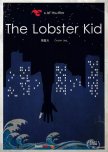
"They do nothing. Like you"
The Lobster Kid is a short film that punched above its weight. Short on time and budget, director Jsf Hsu made the most of each scene and supplied a lovely soft jazz score to fit the mood.A thirteen-year-old girl is trapped in a street gang. She uses lobster analogies when her mind needs to hide from the violence of her surroundings. She desires to escape far away to Taitung and be closer to the lobsters’ surf. Suffering from the punishment of trying to leave, she inadvertently winds up with a begging priest. As the priest has taken a vow of silence, she makes herself at home traveling the city with him, using him to sell her wares and make money for him, too.
The performances were natural with only the gang mistress sliding over the top. The rapport between the girl and monk flowed easily accompanied by a delicate humor. At one point she met up with a friend and played with the young woman’s small daughter. The monk saw that the con artist was little more than a child herself, generous and kind in spirit. The gentle jazz score never intruded but buoyed the action subtly.
My rating might be a tad high given the sometimes amateur performances. The ending won me over and warmed my heart, putting a smile on my face. Like the silent monk who could appear and disappear, I wanted to do whatever was necessary to make this homeless child happy.
7 April 2024
Was this review helpful to you?

Be careful what you wish for...
Fu Xiao Xiao makes a wish on her 15th birthday little knowing it would come true and how it would change her life forever. A.I. on the surface is a standard wish fulfillment story with the consequences that arise, but dig a little deeper and it might cause you to ask uncomfortable questions.Xiao Xiao lives with her divorced father who specializes in A.I. research. She leads a lonely life and is bullied at school. After her 15th birthday a new student arrives in her class and every day he follows her. At first she finds it annoying, but the desire for companionship drives her to accept the quietly adoring Su Xing Chen. By accident she discovers his secret and despite his difference accepts the boy who promises to be with her forever.
As I said, this is wish fulfillment-a boyfriend who will never betray her, never lie, never leave, never hurt her. As he slowly learns what it means to love, their relationship evolves, but never sexually. He also never ages which causes people to question their relationship. Eventually, Xiao Xiao wants more, wants to be normal, to be happy. She finds that normal and happy don’t always coincide, especially for a woman who has never had to learn to compromise and understand the work and wisdom a romantic relationship involves. *
The actors had a nice chemistry. What I enjoyed the most about this short film was the music. I don’t normally pay attention to the background tunes, but in this short film that almost played like a music video it was hard to ignore and easy on the ears.
If you can watch this bittersweet tale of love and acceptance on a superficial level, it is touching and sorrowful. If you choose to look deeper, you may discover questions that are troubling and go unanswered.
2 April 2024
*
*
*
*
*****************Spoilery Talk Below**************
Xiao Xiao’s emotional growth seemed stunted in regards to relationships. Her picker was definitely off as evidenced by the man she chose as a husband. With Xing Chen she could be selfish and only think of her own needs. She didn’t have to be kind because he was just a machine. And therein lies the problem I had with this short film. Xing Chen was a victim of his programming-to be with Xiao Xiao forever. He had no other purpose, no dreams, no desires of his own. Everything in his world revolved around her and her happiness, even as he began to evolve emotionally. The machine learned to love before she did and also learned a harsh lesson about heartbreak. Despite his growth, there was no freedom, no independence, which I found disturbing. This perfect boyfriend would never argue about taking out the trash or where to have dinner. Vacation in the mountains or at the beach? “Whatever you want dear.” Never even complain about being hidden away in a closet. This was tantamount to slavery more than love. Which also brings up the thorny question of the rights for sentient beings regardless of their form. I know, I know, I think too much. It’s a short film about how a human woman and an A.I. prototype develop a friendship and learn to love too late, and I should accept it at the surface value. Which I did, until I couldn’t.
Was this review helpful to you?
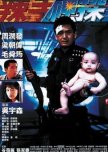
"Don't ever bite your own tail again!"
Hard Boiled was John Woo’s death filled cops and gun-runners ode to action films. A completely over the top, unrealistic, thrill a minute bloody carnival ride.Officer Tequila Yuen is determined to bring down the Triads running guns that caused the death of his partner. A loose cannon who doesn’t play by the rules, he ignores his boss’ warning about staying off the case. It’s not long before he runs into Alan, an origami making Triad assassin. He deduces Alan’s secret and the two reluctantly work together to bring down the deranged Johnny Wong’s gang.
What I liked:
What’s not to like about a Chow Yun Fat and Tony Leung Chiu Wai pairing? The screen could barely hold their bromantic charisma. I could watch these two in about anything. Phillip Kwok (Lizard Venom) as Mad Dog was right up my kung fu movie loving heart. Lo Meng (Toad Venom) made a brief appearance before he like hundreds of others-died. Kwok was also the action choreographer. Stuntmen flew through windows and fell off buildings, and with all of the bullets hitting and grenades exploding they rolled and were flung about the sets continuously. Chow Yun Fat’s signature move of diving through or over something with both barrels blazing was used several times. Bruce Law was the guy often called for car stunts and there were cars and motorcycles flying, flipping, and exploding everywhere. The stakes were high with hundreds of civilians and a nursery full of new born babies to worry about. Will someone please think of the children!
What I didn’t care for:
It was almost like John Woo wondered how many senseless deaths he could get away with. The gruesome deaths of innocents fleeing a hospital were disturbing in particular and also all the friendly fire deaths. One friendly death was caused because Tequila couldn’t stop taunting Alan instead of guarding the person relying on him for survival! I knew some film nerd would count the casualties for me-thank you Collider!: The body count for Hard Boiled was 305. Honestly, after the first 100 deaths it became monotonous watching the bad guys mow people down with automatic weapons or with RPG fire. Some of the fire fight casualties were funny. I understand a bullet can go through two as easy as one, but not when the people are standing side by side! It's apparent that the carnage had gotten out of hand when the bad guy named Mad Dog complained about the overkill.
While many people enjoyed the reckless slaughter of the masses, it didn’t work for me. I would have rated this film much higher if Woo had showed a modicum of restraint instead of characters gleefully gunning down anyone moving. Despite having some cute babies in the film to lighten things up, Hard Boiled was the kind of relentless gun porn that might have the average viewer wanting to take the dream trip to Antarctica that was talked about in the film. A place where there was always light after living with so much darkness. *
20 March 2024
*(Scientific quibble-Antarctica has light for six months out of the year, it’s dark the other six)
Was this review helpful to you?

"Fame and fortune bring disasters to many"
House of Traps was a Chang Cheh movie featuring most of the Venoms though my favorite, Lo Meng, was missing. Phillip Kwok, Sun Chien, Chiang Sheng, and Lu Feng were all featured in this convoluted tale of rebellion and double crosses. And of course there was a secret list with rebel names on it!The film opened with the lineage of the current emperor and a tale of how the first one was murdered as well as his son.
Prince Zhao Jue is the son of the prince who was killed and is planning a rebellion. Normally, he might have the moral high ground but in the House of Traps, he’s the villain. A villain with a house of traps where he stores treasures stolen from the Imperial Palace and hides the secret rebel list. Scholar Yan Chun Min is chosen from the imperial side to investigate the prince and stop his rebellion. He’s aided by two unorthodox swordsmen. Not everyone will make it out of the House of Traps alive.
This story was hard to feel invested in as the motivations weren’t particularly clear. For a movie with four of the Venoms, it was also short on action. The fights were faster than kung fu posing but not lightning quick either. Phillip Kwok (Lizard Venom) choreographed numerous movies, including this one. His moves were lively and nimble though he wore what looked like a roadkill scarf on his head with matching boot cuffs-a major fashion “don’t”. Ricky Cheng and Chiang Sheng (Venom apprentice) provided levity as kung fu masters disguised as magician street performers. Lu Feng (Centipede Venom), as he often did, played the bare-chested baddie with killer moves. Sun Chien (Scorpion Venom) played against type as a scholar with no martial arts skills. The house of traps provided several lethal traps that permanently prevented some of the characters from leaving. What it didn’t provide were any female characters, another one of those strange worlds where only men inhabit.
House of Traps would have benefited from a better story, like telling us why we should root against the prince whose birthright was stolen instead of for the usurpers. At best it was an average early kung fu flick. I enjoyed seeing the majority of Venoms together for one of their last collaborations, but didn’t particularly care who walked off into the sunset.
19 March 2024
Was this review helpful to you?
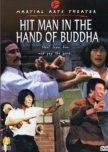
Wong Chin comes to the town where his sister and brother-in-law live looking for work. Chasing a pickpocket leads him to their boss, Beggar Fan. After the two fight, Beggar Fan takes a liking to the brash young man. Not long after Wong ends up in a fight with the annoying Shan Hao. Shan Hao’s boss Tiger/Uncle 33 takes unction at the upstart’s disrespectful action and visits Wong’s family with deadly consequences. Ignorant of what has happened Wong fights with Tiger when the villain comes calling and is losing badly. Beggar Fan steps in and negotiates to save Wong’s life by having the young man leave town. Beggar Fan sends Wong to the shaolin temple for him to learn new techniques that might save his life in the future.
I love watching “Thunderleg” Lee fight, especially when he’s kicking. A 9th dan Grandmaster in Tang Soo Do and Taekwondo he’s the real deal and his high-flying acrobatic kicking needed no wires or CGI. The early fights and the end of the last fight were the best when Hwang Jang Lee was using his Thunderleg. The hand to hand and pole fighting were overly choreographed although they did display Hwang’s athletic ability and agility. A chopstick scene was quite creative in a fight against Tino. I was happy to see him able to play the good guy, a very rare event. Eddy Ko lacked in speed but made up in menace as Tiger/Uncle 33. Whenever there was a need for a smarmy or rapist character producers must have had Tino Wong on speed dial.
The story is one done a hundred times and I wished that Hwang had avoided the rape in his story. The rest was typical. Good guy comes to town, stands up for the little guy and is beaten by the bad guy. He studies a new form with training montages and then returns for the rampage and pay back. This movie was filmed in Korea so at least there was a new shaolin temple for a backdrop. There was a Hong Kong cut of the film and a Korean cut. I saw a version with English dubbing, sometimes a necessary evil with these older kung fu films, but it was also interspersed with German!
Hwang Jang Lee is one of my favorite fighters to watch and being able to enjoy his turn as a hero was a bonus. The kicking fights were fluid and exhilarating. I only wish the rest of the slower fights, while complex, had been as thrilling. As always, I grade these old niche films on a curve.
13 March 2024
Was this review helpful to you?
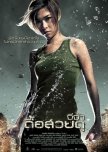
"My heart belongs to me"
Raging Phoenix starred Thai kicker Jeeja Yanin. The story was weak as was some of the acting, but those are not the priorities in this genre of movie. Did Jeeja kick, elbow, and pummel her enemies in style? Yes. Was the fight choreography as incredible as Chocolate? No. But most of the fights were entertaining.Brokenhearted Deu escapes from a kidnapping and is rescued by a stranger named Sanim. He battles fighters that wouldn’t have been out of place in a Road Warrior movie. Or a parkour street fight with razor prosthetics. His team is made up of three other fighters-Dogsh*t, Pigsh*t, and Bullsh*t. They’ve all lost women in their lives to the kidnappers and are resolved to bring the Jaguar gang down and rescue the surviving victims. The men practice Meyraiyuth, a form of drunken Muay Thai. Before you can say, “Wax on, wax off,” Deu is a proficient fighter. She’s willing to be used as bait to find the headquarters of the bad guys and where the women are being kept. Nothing goes that easy and they will all find themselves in considerable peril.
The story was thin and filled with man pain tropes. Jeeja Yanin had enough acting ability for what the role called for and there’s something about her that is likeable. Kazu Tang who was usually employed as a stuntman or fight choreographer was fine as the determined Sanim and object of Deu’s unrequited love. The Poop Brothers weren’t very strong actors but conveyed enough meaning to keep the story going. Though their first thirty minutes was filled with slapstick comedy that five-year-olds would appreciate.
The fights were well choreographed and the wire-work, for the most part, blended in. There was plenty of action that didn’t require any special effects help. Jeeja and Kazu were fun to watch as they kicked, bounced, and spun. Both were quick and athletic. The fight between Jeeja and Roongtawan Jindasing’s evil Jaguar had some moves that appeared all too real and bone crushing. The Poop Brothers’ style came across as a combination of Meyraiyuth and break dancing. I’ve never seen a fighting style that required spinning on one’s head! Raging Phoenix wouldn’t win any awards for the CGI backdrops to the fights, they were pretty bad. For a lower budget film, I didn’t mind.
If you are looking for a coherent and tightly written story, this won’t be it. If you are looking for superb acting, best to pass. If you enjoy high flying, flipping, crushing knee kicks and elbow hits and kickass women fighting, this might be the ticket.
11 March 2024
Was this review helpful to you?
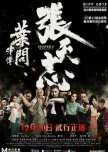
Cheung Tin Chi had been working for Yuen Wah and Tony Jaa as muscle for hire with a code. He earned enough money to open a small store under his apartment. Fate puts him in the path of Julia and Nana who are running away from Tso Sai Kit who runs the local opium den. Cheung protects the women but makes an enemy of Kit. Soon he will be working with Julia’s brother Fu who has a bar that caters to Westerners. He also comes into contact with Kit’s sister who is trying to convert their gang into a legitimate business and Owen Davidson, a giant of a man who runs an upscale restaurant and is a philanthropic businessman or so he would have people believe. Soon Cheung is in a battle for not only the lives but the souls of the people on Bar Street.
Master Z was a by-the-comic-book interpretation of history. Bar Street was pristine and gleaming, far too perfect looking. Cheung’s son even idolized Black Belt/Batman. The villain was bald, white, and enormous, similar to Daredevil’s Kingpin. You know he was a villain because he ate steak which is code for barbaric, I guess. Michelle Yeoh’s complicated Triad boss showed that the Chinese can clean up their own messes when she disarmed her drug dealing brother. But it would take a team effort to defeat the foreigners. The dialogue could be heavy handed and some of the supporting characters weren’t very strong actors but fortunately, Zhang Jin was captivating to watch even if his character was thinly drawn. Michelle Yeoh added some movie star cred to the cast and gravitas to her elegantly lethal character.
Since this was an Ip Man spinoff I expected good fights. Some of them were. Zhang Jin actually practices martial arts so that’s usually a good start. Yuen Woo Ping had to dip back into his Shaw Brothers days and bring out the wires. I don’t mind a little wire-fu, but it has to flow naturally. In a street fight as Cheung and the bad guys flew up and down the buildings awkwardly, all I could think about was the epic building fight from Chocolate (2008) with Jeeja Yanin sans wires. Much of the wire work in Z was not orchestrated well. To quote another superhero, “Jarvis, just skip the spinning rims.” Dave Bautista beating a good guy like he was using a paddle ball was another over the top stunt but showed the big man was a super bad guy. Zhang Jin was fun to watch and his moves were smooth, confident, and fast. And I will never tire of Michelle Yeoh being a badass whether hand-to-hand or with a sword. I wish Tony Jaa had been able to cut loose, but this wasn’t his movie. Kung fu movie alum Yuen Wah made a welcome guest appearance. They had plenty of veterans on screen and the excellent Yuen Shun Yi choreographing the fights. Most were well done except when they completely defied gravity in less than fluid manners.
Master Z was entertaining even when it lacked nuance. Cheung Tin Chi and his new Bar Street family made a competent addition to the Ip Man series. The grand fight between good and evil when Cheung finally regained his mojo was what kung fu and superhero movies are made for, especially when the people bond together around the hero to take back their town.
7 March 2024
Was this review helpful to you?
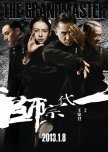
Horizontal or Vertical?
I watched The Grandmaster years ago and while I thought it was visually stunning, the story left me wanting. After watching several Wong Kar Wai films recently, I decided to revisit it and see if my perspective changed.In 1936 Foshan, China, Grandmaster Gong Yu Tian is coming to town to pass the torch to a new Grandmaster. The consensus is that Ip Man would be a good choice but he will have to face Yu Tian. Yu Tian’s daughter, Gong Er and Ip Man eventually spar and a connection is made despite the fact that Ip Man is married and has children. Who is Grandmaster and who is horny for whom becomes irrelevant as the Japanese invade the country. Ip Man loses his home and his fortune as he and his family face poverty and starvation with much of the rest of the people. Because he belonged to the wrong political party after the war, he moves to Hong Kong around 1950. He will once again run into Gong Er, but her life has taken a drastic change.
As with the first time I saw this film, the cinematography was gorgeous and lush. Beautiful people in beautiful costumes filled the screen. Smoke from cigarettes or trains wafted and circled about as if alive. Snow and steam formed the perfect backdrop for a cataclysmic fight. As did rain and puddles when Ip Man fought a dozen men at the beginning of the film. Music as much as the standard Wong Kar Wai dark palette of green, yellow, and shocks of red set the mood.
The fights were entertaining, but more stylistic than realistic. Forced close-ups and slow motion made the fights more dance than danger, even when people were thrown through windows. Many times I wished they could move the camera back to show more of the full body motions, but with actors who are not martial artists that likely wasn’t possible. I was happy to see old school kung fu actors like Lo Meng and Lau Kar Yung make brief appearances. And I could have used much more of The Razor played by Chang Chen.
Tony Leung Chiu Wai was an elegant Ip Man, but it was hard to connect to the character with the uneven storytelling. He was also a man with a wife and children longing for another woman. Song Hye Kyo as Ip Man’s wife was mostly an afterthought. She had scarcely any lines. The romance was focused on Gong Er as was much of the film. Zhang Zi Yi gave a good performance as the daughter who vowed to return the family’s honor even if it meant her death. Another issue I had were the relentless voiceovers and intertitles, they completely broke the rhythm and mood for me, distancing me from the characters.
The Grandmaster was a striking film to look at but not as much fun to watch as the story often stumbled. And aside from the fight at the train station, much of it will fade from memory as it did the first time because there was little substance to cling to.
6 March 2024
Was this review helpful to you?

"My sword is getting thirsty"
The Swift Shaolin Boxer, even by 1970’s Taiwanese kung fu standards, was completely bonkers. There were triple crosses, maybe quadruple, I lost count somewhere along the line. And for around 45 minutes I had no idea what was going on and who were the good guys and the bad guys and why it all mattered. The fights were fun though and used a variety of styles, weapons, and accoutrements.Angela Mao worked at an inn that was the headquarters for the bad guys. The translation said rebels, but the rebels were usually the good guys, right? Not when Lo Lieh was the leader and ordering people to be murdered. Whatever their game plan was and it was never disclosed, they were the baddies. The good guys sent Hsieh Hsing and later Wang Kuan Hsiung with letters or lists, something that people were willing to kill for. Ultimately, Barry Chan showed up twenty-five minutes into the movie in a field of flags and began dueling with people. He faced people using swords, staffs, a giant, and kung fu fighting, finally facing Chia Ling. After winning the contest he was allowed to work for the emperor and off to Angela’s inn he goes. Was Angela a bad guy? Was Barry a good guy? The bad guys were terrible at communicating to each other who was on their team because they kept fighting each other.
The fights for the time and place were actually pretty good and for the most part avoided kung fu posing although there were way too many misses. The choreography was over the top though----lots of wire fu, trampoline bouncing, gymnastics, reverse shots, and undercranking. Several people fought in an umbrella labyrinth. Why was there an umbrella labyrinth in the middle of nowhere? Who knows? Not only did the grown-ups fight, but when Wang went into a secret monastic lair in a mountain he had to fight child monks wearing gold sequined outfits with special abilities. Why were their child monks? Who knows? One of my favorite tropes-hopping vampires made an appearance and got the chance to fight, too. There was also a killer flute. Music so bad it kills!
The story became more convoluted and hilarious by the minute, fortunately the fights kept coming. I’m always happy to see Angela Mao and her fierce gaze and quick feet. Barry Chan may not have been the strongest fighter but he acquitted himself well in this movie. And Lo Lieh made every kung fu movie better by being on screen even when he was relegated to only a few minutes at the beginning and then at the end. Did I ever figure out what all the fighting was about? To quote one character, “Who knows?”
4 March 2024
Was this review helpful to you?
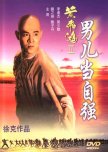
"Who would have thought time was so important?"
Once Upon a Time in China 2 reunited Jet Li, Rosamund Kwan, and director Tsui Hark. Max Mok joined the cast as Leung Foon. This time around Wong Fei Hung had the White Lotus Cult to deal with as well as a deadly Commander all while helping Dr. Sun Yat Sen and his rebellion. And there was a secret list in true traditional kung fu film style!Whether it was led by Lo Lieh in a white wig or Xiong Xin Xin, the White Lotus Cult was always full of crazed and dangerous followers in Kung Fu Land. Based on a real sect, in this iteration, they wanted to rid China of anything remotely Western. You know they were evil because they even threw a Dalmatian dog on the bonfire for being too Western. Wong Fei Hung takes his first train ride to Canton along with 13th Aunt and Leung Foon arriving just in time for the burning and murdering. He also meets Dr. Sun Yat Sen at a medical symposium and befriends him. Along the way they rescue Chinese children who were taking foreign language classes and are on the cult’s hit list. Commander Lan appears to be all helpful and loyal but the audience knows better.
I enjoyed this film better than the first one. The story kept the action and conflict cranked but most importantly we were given two amazing fights between Jet Li and Donnie Yen. Yuen Woo Ping won the HKFA for best Fight Choreography and he earned it. He pushed Jet and Donnie and they excelled. There was wire work to be sure, but these two fast hitters were in their prime and sold every move with fists, kicks, poles, and wet towels. The fight with the cult leader relied too heavily on fantasy wire work, while entertaining, it wasn’t as good as the other two big fights.
The drawbacks for me with this film usually involved Leung Foon. His weird arousal every time he was near 13th Aunt was creepy and I didn’t find him amusing, mostly annoying. I also didn’t need to see three vomiting scenes. Because of the conflation of a cult attack, rebels with a secret list, 13th Aunt wanting WFH to notice her, a British embassy and children to protect as well as a murderous corrupt official to deal with, the story bounced around a lot and also dragged in places.
What drew me to this film and made it enjoyable were the fights between Jet Li and Donnie Yen. Without them the film would have been lackluster. It was fun to watch two kung fu movie legends go against each other in a no holds barred pole and wet towel fight.
2 March 2024
Was this review helpful to you?

 49
49 165
165 10
10






















